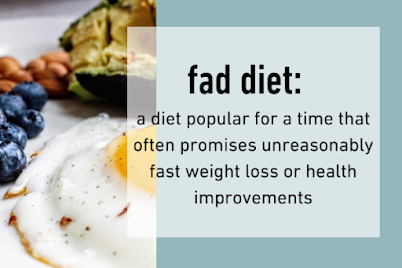The Shortcomings of Fad Diets: Why Long-Term Results Require Sustainable Changes
In the ever-evolving world of fitness and nutrition, fad diets have gained immense popularity, promising quick and effortless solutions to weight loss and a healthier lifestyle. These diets often grab attention with their catchy slogans, celebrity endorsements, and dramatic success stories. However, beneath the surface, they rarely offer sustainable solutions for long-term health and well-being. In this blog post, we will explore the reasons why fad diets are not built for long-term results and why sustainable changes in lifestyle and eating habits are the key to achieving lasting health benefits.
1. Unrealistic Expectations
Fad diets often promote rapid weight loss, claiming that you can shed a significant amount of weight in a short period. While it's true that you might see initial weight loss, much of it comes from water weight and muscle mass, not fat. Rapid weight loss is not sustainable and can even be detrimental to your health in the long run.
2. Nutritional Imbalance
Many fad diets severely restrict certain food groups or nutrients, leading to nutritional imbalances. Our bodies require a variety of nutrients from different sources to function optimally. Cutting out entire food groups can lead to deficiencies in essential vitamins, minerals, and fiber, which are vital for overall health.
3. Unsustainable Restrictions
Fad diets often impose strict rules and restrictions, making them difficult to follow in the long term. People may find themselves constantly battling cravings and feeling deprived, leading to binge-eating episodes. This cycle of restriction and indulgence is unhealthy and can create an unhealthy relationship with food.
4. Lack of Individualization
Each person's body is unique, and what works for one individual might not work for another. Fad diets typically follow a one-size-fits-all approach, ignoring the diverse nutritional needs and preferences of individuals. Sustainable changes should be tailored to an individual's lifestyle, preferences, and health requirements.
5. Ignoring Psychological Factors
Long-term success in adopting a healthy lifestyle is not just about physical changes; it's also about mental and emotional well-being. Fad diets rarely address the psychological factors related to eating habits and body image. Without addressing these aspects, it's challenging to make lasting changes in behavior and attitudes towards food.
6. No Focus on Physical Activity
Fad diets often prioritize food choices while ignoring the importance of regular physical activity. A sedentary lifestyle, coupled with poor eating habits, can lead to a host of health issues. Sustainable weight management and overall well-being require a balance between healthy eating and regular exercise.
While fad diets might offer quick fixes, they are not the answer to long-term health and wellness. Achieving lasting results requires a holistic approach that includes balanced nutrition, regular physical activity, and addressing psychological factors. Instead of falling for the allure of fad diets, individuals should focus on making gradual, sustainable changes in their lifestyle and eating habits. By doing so, they can embark on a journey towards better health that lasts a lifetime.

Comments
Post a Comment